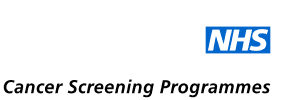Breast screening programme saves 1,400 lives per year.

Breast screening programme saves 1,400 lives per year. |
 |
|
|
Published 22nd February, 2006 
A new report published today estimates that the NHS Breast Screening Programme is saving 1,400 lives every year in England. This comprehensive review of the screening programme shows that women who attend for screening are not only less likely to die from breast cancer, but also less likely to be treated with a mastectomy than those who are not screened. The purpose of the report, 'Screening for Breast Cancer in England: Past and Future' was to review all available evidence on the benefits and risks associated with the NHS Breast Screening Programme and to draw firm conclusions about its effectiveness. Julietta Patnick CBE, Director, NHS Cancer Screening Programmes says, "I am delighted that these findings recognise the huge contribution the programme is making to women's lives. Breast screening is effective in combating this very common disease. I hope the report will encourage women to make an informed choice to attend for screening when invited." The Chair of the Advisory Committee on Breast Cancer Screening which produced the report is Professor Valerie Beral, Director of the Cancer Research UK Epidemiology Unit at Oxford University. She says, "Our findings clearly show that, for women aged 50 and over, breast screening can save lives. By detecting breast cancer earlier it also provides many women with improved outcomes, reducing the likelihood that they will need to undergo invasive treatments such as mastectomies. The value of breast screening has been debated and we have carefully evaluated both its advantages and disadvantages. The available evidence undoubtedly demonstrates that the benefits of the programme greatly outweigh any risks." The report's findings are based on a review of all areas of the breast screening programme including: efficacy, treatment, technological developments, age and frequency of screening, costs, communication with women and attendance for screening. Evidence is considered from the worldwide literature and applied to the actual experience of the breast screening programme in this country. |
Breast screening programme index What happens at a What are the risks of breast screening? Frequently Asked Questions (FAQs) DCIS (Ductal Carcinoma | ||||||||
| ||||||||||